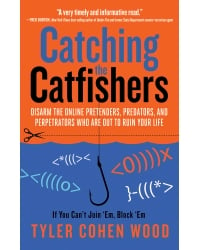Controlling Your Online Image
If you’re job hunting and not on LinkedIn and Twitter, it’s time to get moving and create accounts. Nine out of ten recruiters uses social networks to recruit.
When it comes to social media, your boss, colleagues and experts in your field and future employers will get an immediate first impression and perception of who you are as a person based on your posted content.
And it’s a lot harder to change a bad first impression than it is to maintain a good one.
How do you manage your online identity through social media and create the impact that you want others to see?
Your goal should be to portray your social media content so that it manages other people’s perception of you. The best way to achieve this is to look at your current social media content through the eyes of a recruiter, boss, or professional expert. Each post itself might be innocuous, but when pieced together with all of your other posted content, you might see that you are coming across differently than you intended.
Here are five tips to ensure that you make a good first impression online and maintain your hard-earned reputation.
1. Assume that anyone can read all of your posts. Many people assume that they are protected by the privacy settings on their social media, but privacy settings can and do change. When you post to your personal and professional social media, make sure that with each post you imagine your boss, colleagues or other experts in your field reading it and think about how they will perceive you based on it.
2. Never complain about work or speak ill of former colleagues or employers. Maybe you had a bad day at work or are frustrated because you got turned down for a promotion. Social media is not the place to air your dirty laundry — or your company’s. When I discussed this issue with HR professionals, all of them said that when viewing potential candidates’ social media for a position (which they all do), they will pass on a candidate who trashes their company or boss. Reason: they assume such a person won’t work well on a team or, even worse, might not keep company secrets.
3. Don’t let your posts make you appear to have a negative personality. Don’t be overly argumentative on any issue. You might be very passionate about a political issue, which is fine, but social media is not the place to engage in a heated argument about it. I have seen people get into what would be the equivalent of a social media fist fight over politics on social media. Again, HR professionals say that this is a huge turn off. First off, you probably won’t change the other person’s mind on the issue and it shows that you are not open or respectful to other people’s opinions. But it also makes you look as if you can’t compromise, which is an essential component to all successful business ventures.
4. Show that you have a life. HR and hiring managers like knowing that their employees don’t live and breathe work. If you belong to a charity, talk about it. Sharing about a hobby like art, biking or cooking shows you have interests outside of work, engage in your community and are interesting
5. Be careful who your friends are. The “birds of a feather, flock together” concept is a very real online red flag. If you’re friends with people who are known troublemakers, you might appear to be a troublemaker, too, whether it’s true or not. Pay attention to what your friends post and what they tag you in. That photo of the bachelor party where everyone had one too many shots of tequila does not belong on social media.
With careful management, your online image can propel you to greatness. The Internet is the greatest tool we have to achieve and exceed our professional goals. Use it properly and the possibilities are limitless

 Tyler Cohen Wood is a Cyber Branch Chief at the Defense Intelligence Agency. In her new book, Catching the Catfishers: Disarm the Online Pretenders, Predators, and Perpetrators Who Are Out to Ruin Your Life, she discusses privacy and how to protect yourself online. Her views above are solely hers.
Tyler Cohen Wood is a Cyber Branch Chief at the Defense Intelligence Agency. In her new book, Catching the Catfishers: Disarm the Online Pretenders, Predators, and Perpetrators Who Are Out to Ruin Your Life, she discusses privacy and how to protect yourself online. Her views above are solely hers.


Submit a Comment